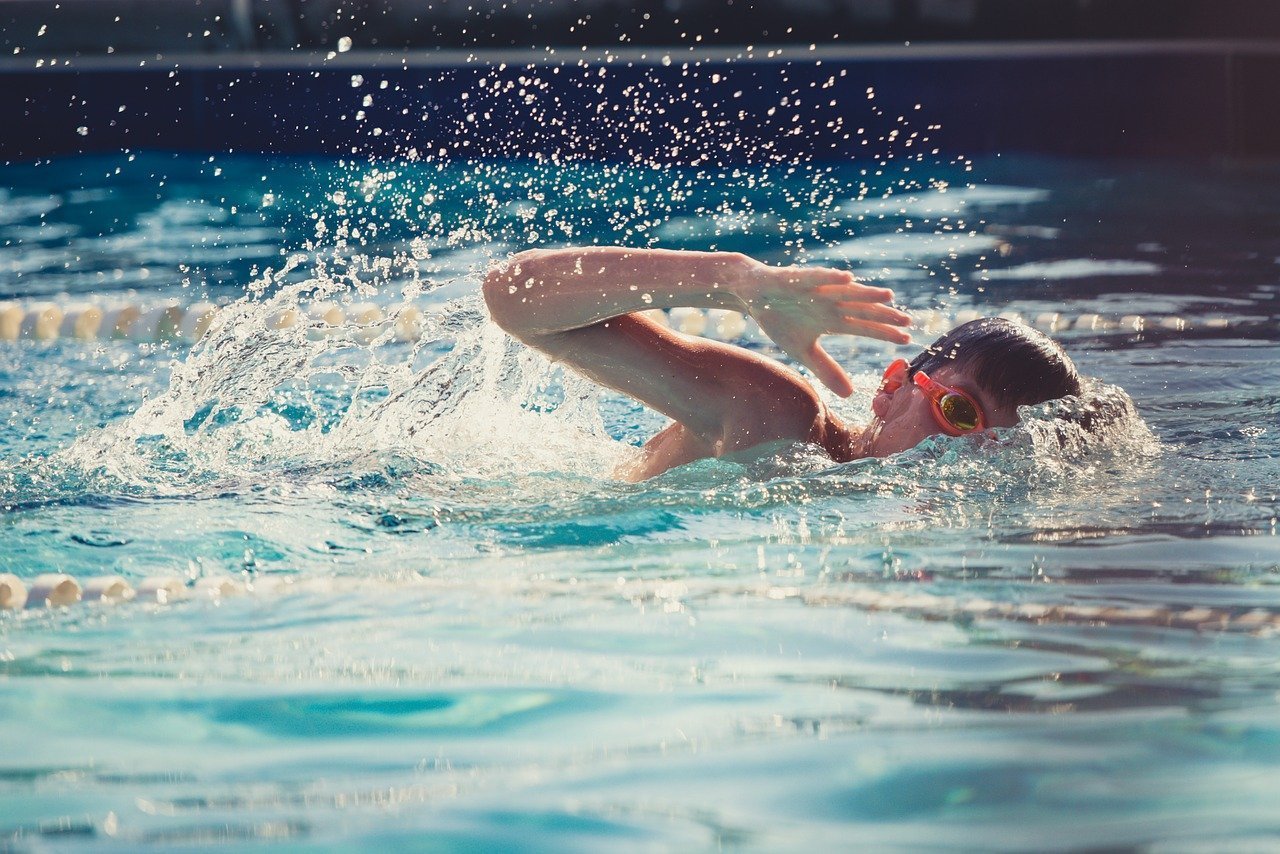Summary: Children who swim or participate in other motor movement-focused exercises were 13% more accurate in vocabulary tests than children who did not engage in exercise. Researchers say movement-focused exercises can help with the encoding of new words in children.
Source: University of Delaware
Swimming a few laps likely won’t turn your child into the next Katie Ledecky or Michael Phelps, but it just might help them become the next J.K. Rowling or Stephen King.
A recent study by University of Delaware researchers suggests exercise can boost kids’ vocabulary growth. The article, published in the Journal of Speech Language and Hearing Research, details one of the first studies on the effect of exercise on vocabulary learning in children.
Children ages 6 to 12 were taught new words before doing one of three things — swimming, taking part in CrossFit exercises or completing a coloring sheet. The children who swam were 13% more accurate in follow up tests of the vocabulary words.
It makes sense to the lead researcher, Maddy Pruitt, herself a former college swimmer who now regularly takes CrossFit classes. “Motor movement helps in encoding new words,” she said, explaining that exercise is known to increase levels of brain-derived neurotrophic factor, a protein Pruitt describes as the “Miracle-Gro of the brain.”

Why then, did swimming make a difference while CrossFit did not? Pruitt attributes it to the amount of energy each exercise demands of the brain. Swimming is an activity the kids could complete without much thought or instruction. It was more automatic, while the CrossFit exercises were new to them. The children needed to learn the moves, which required mental energy.
Pruitt conducted the research as part of her Master’s Capstone Project and graduated in 2020. She now works as a speech language pathologist at an elementary school in South Carolina, where she puts her findings into practice.
“My sessions are very rarely at a table,” she said. “I’ll take my kids out to the playground or we’ll take a walk around the school.”
Pruitt’s adviser and coauthor Giovanna Morini is building on the findings in her lab. Morini, an assistant professor in the Department of Communication Sciences and Disorders, said most research into exercise examines it from the angle of a healthy lifestyle, not much enters the domain of language acquisition. She said she sees this as a rich line of inquiry and has another student running a similar experiment now with toddlers.
“We were so excited about this study because it applies to clinicians, caregivers and educators who can put it into practice,” Morini said. “It’s simple stuff, nothing out of the ordinary. But it could really help boost the outcomes.”
About this exercise and language learning research news
Source: University of Delaware
Contact: Andrea Boyle Tippett – University of Delaware
Image: The image is in the public domain
Original Research: Closed access.
“Examining the Role of Physical Activity on Word Learning in School-Aged Children” by Madison Pruitt and Giovanna Morini. Journal of Speech, Language and Hearing Research
Abstract
Examining the Role of Physical Activity on Word Learning in School-Aged Children
Purpose
Previous studies show that there is increased brain activity after exercise, leading to improved word recall in adults. The aim of this study was to examine whether different types of exercise (i.e., aerobic vs. anaerobic) may also lead to improved performance during vocabulary learning in children.
Method
A total of 48 participants (24 in Experiment 1 and 24 in Experiment 2) between the ages of 6 and 12 years completed a word learning task. Training of words took place in a resting and in an exercise condition using a within-subject design. In the resting measure, children were taught names of novel objects and then colored for 3 min before being tested on their ability to recognize the words. In the exercise condition, the same steps were followed, but instead of coloring, children engaged in 3 min of either aerobic exercise (i.e., swimming in Experiment 1) or anaerobic exercise (i.e., a CrossFit-like workout in Experiment 2).
Results
In Experiment 1, accuracy of word recognition was significantly higher for words that were trained in the aerobic exercise compared to the resting condition. In Experiment 2, there was no significant difference in performance between the anaerobic exercise and resting conditions.
Conclusions
These findings suggest that previously identified benefits of exercise on language abilities in adults also extend to school-aged children. However, not all types of physical activity lead to this boost in performance, as only aerobic (but not anaerobic) exercise improved children’s ability to acquire new word–object relations.






